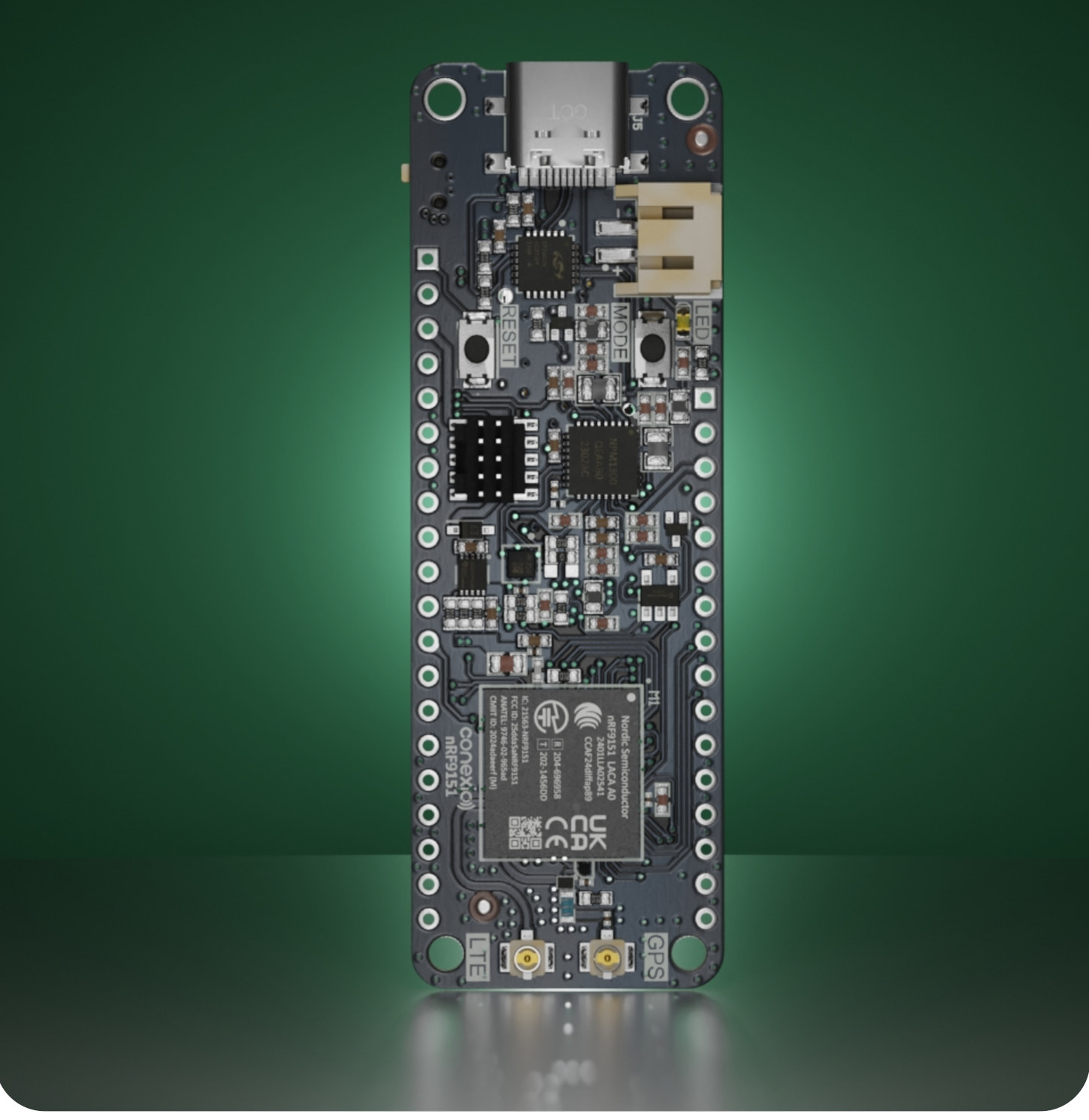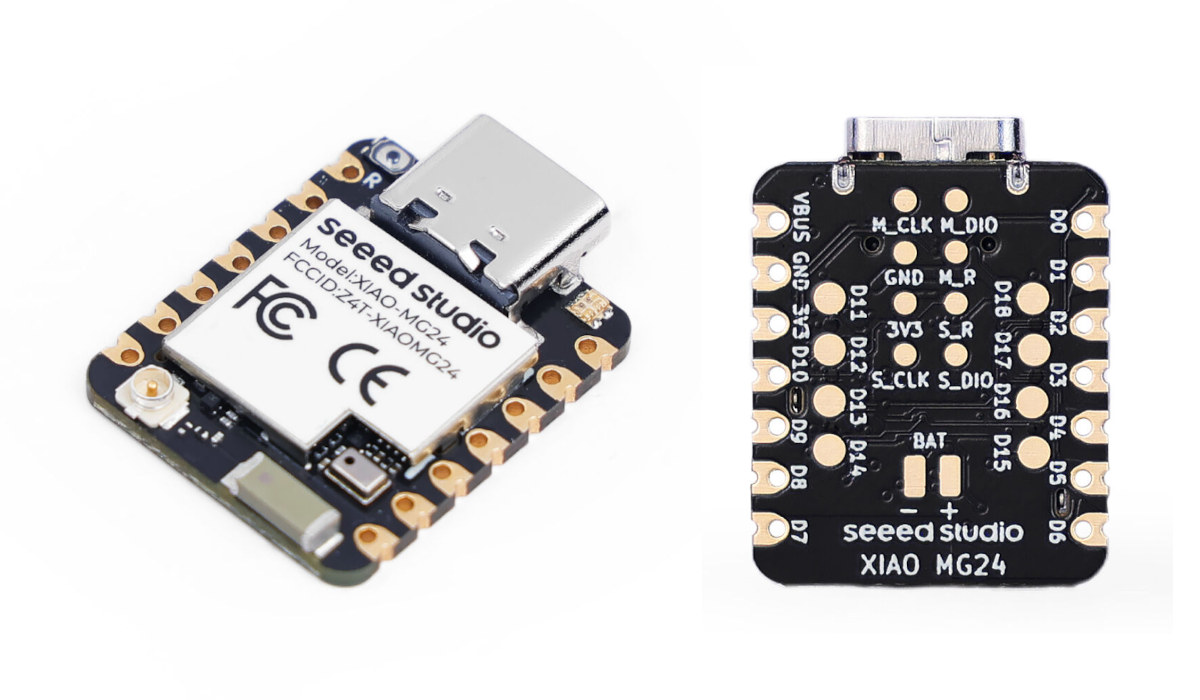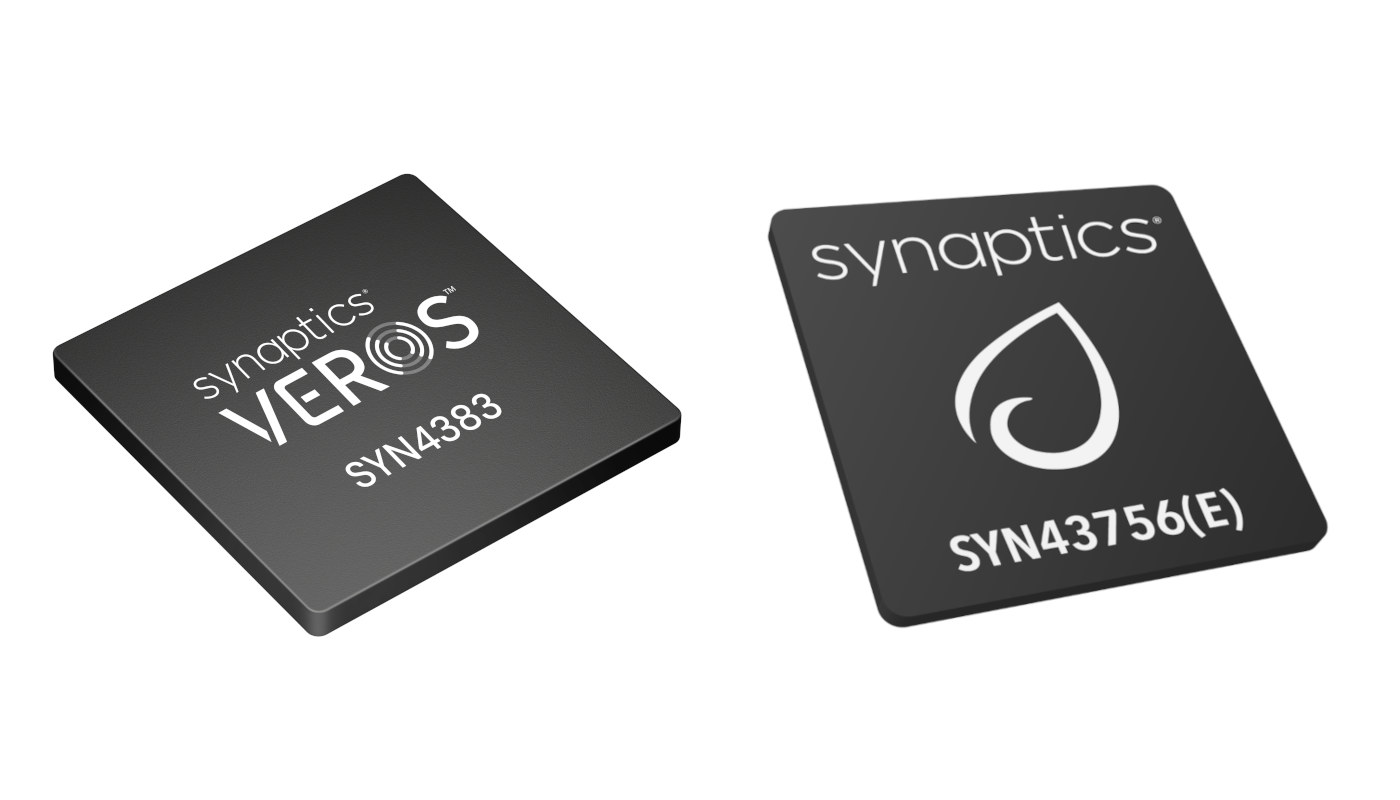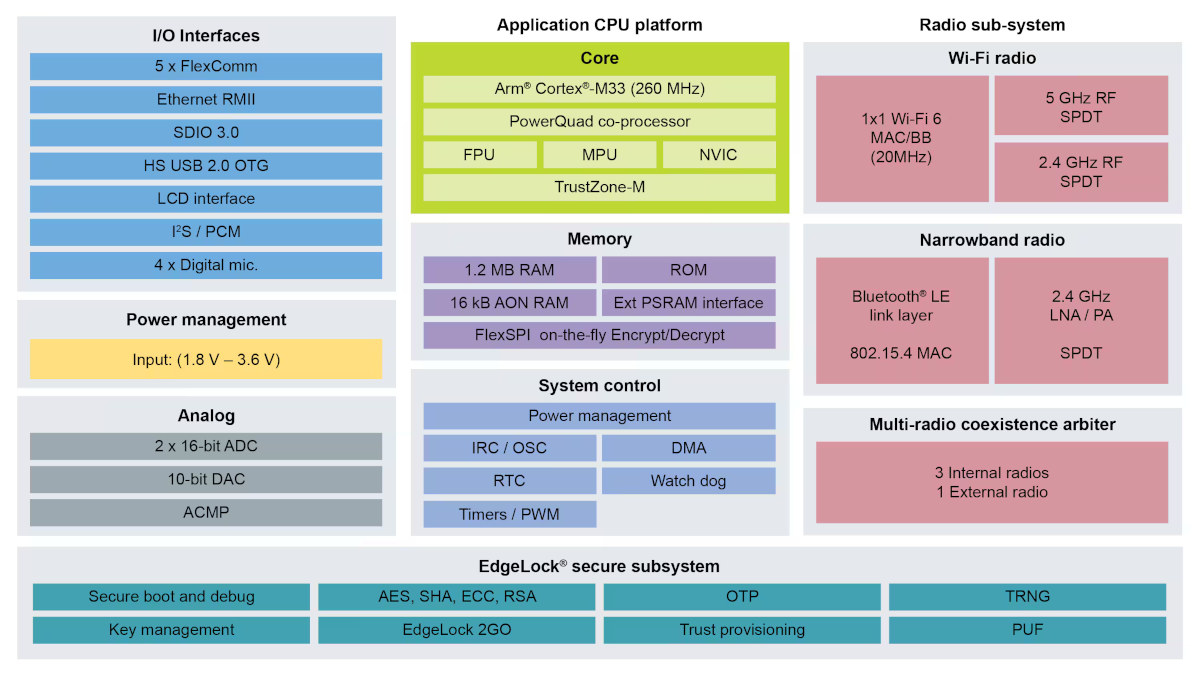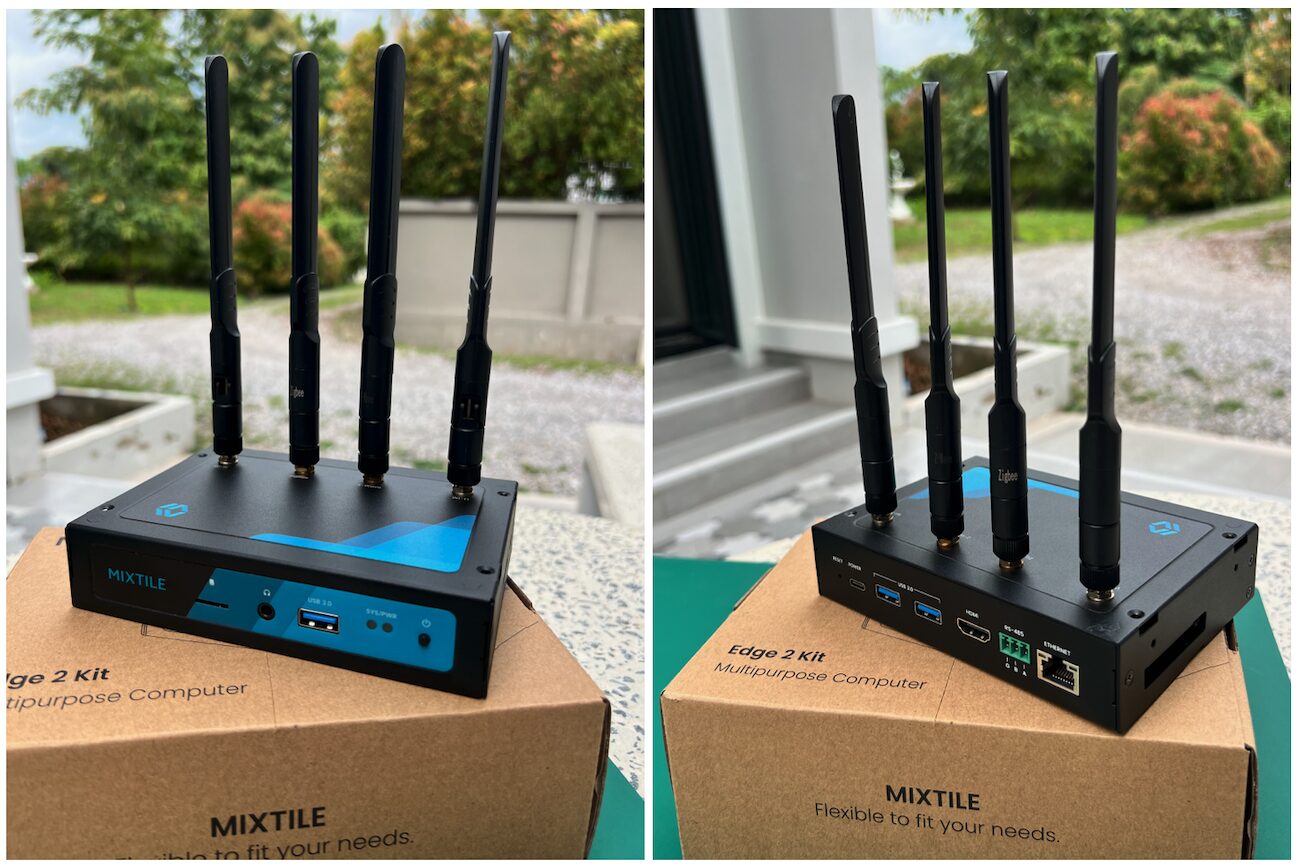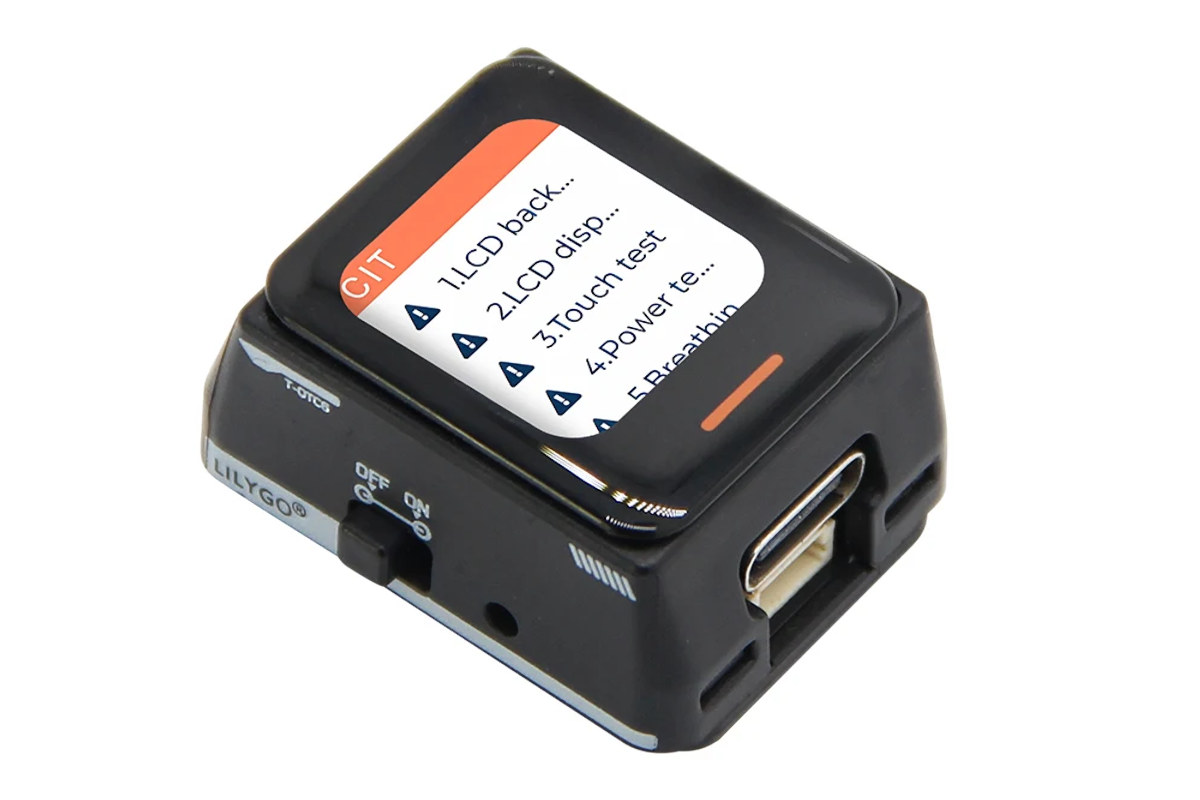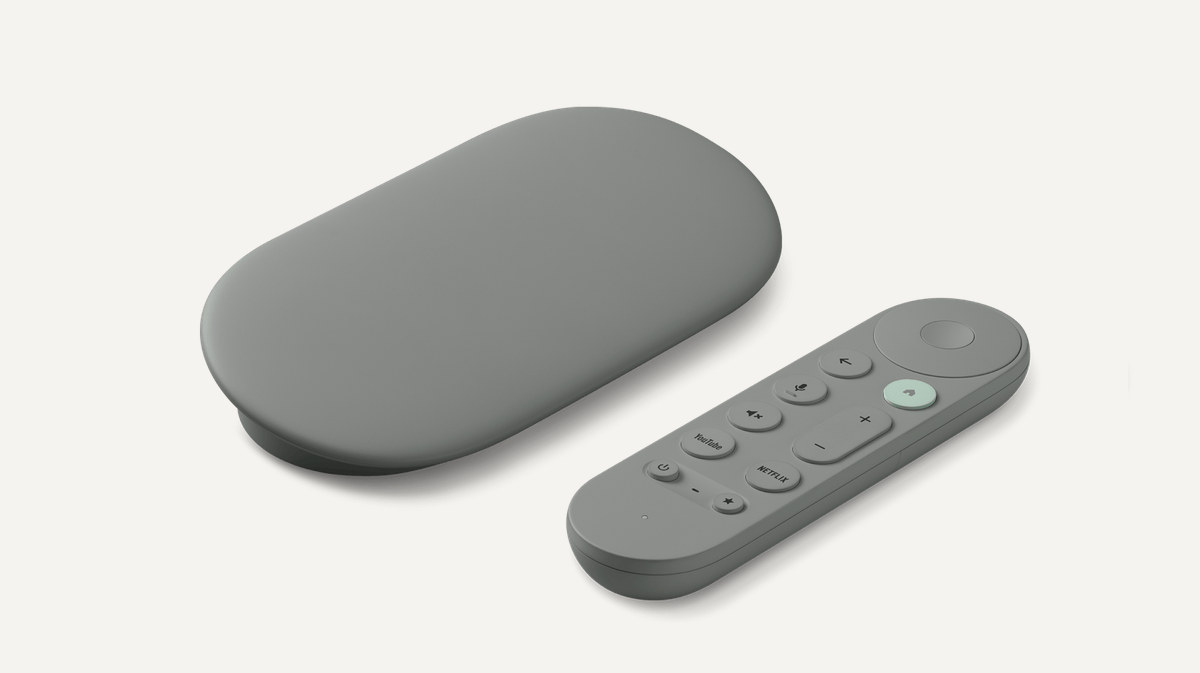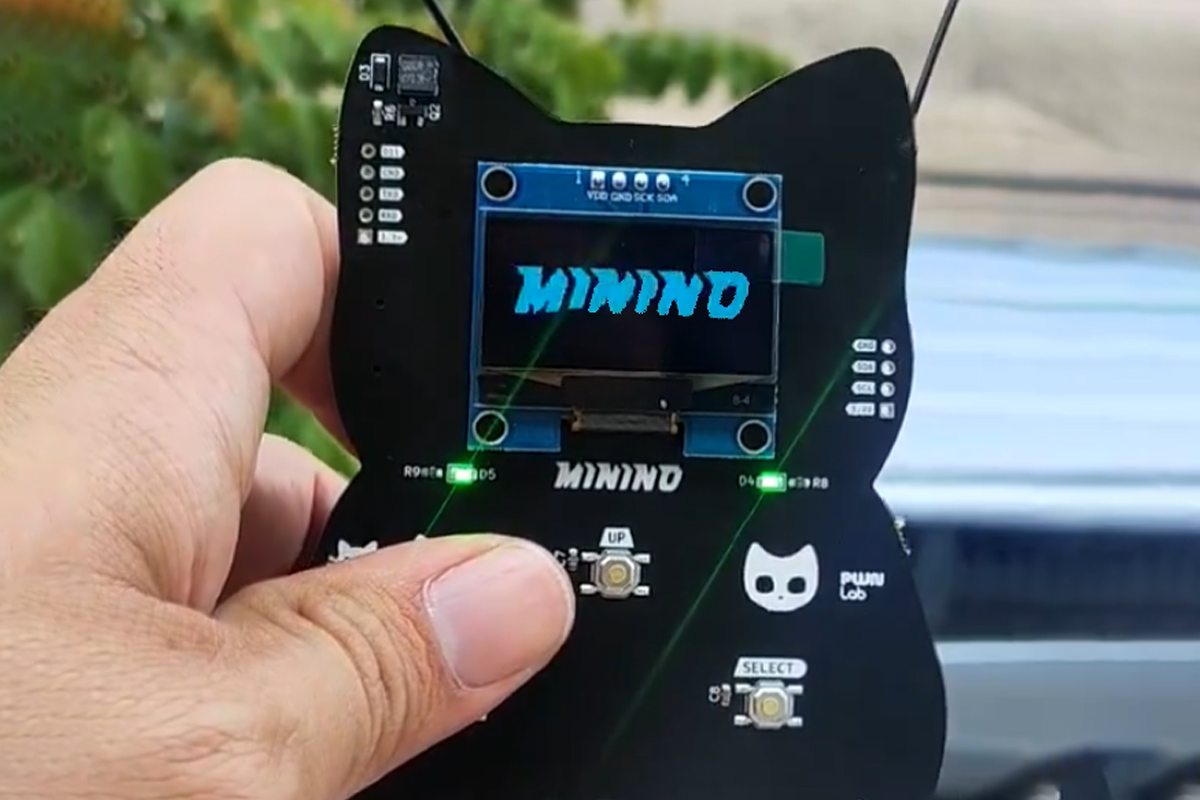Conexio Stratus Pro nRF9151 is an IoT development kit based on Nordic Semi nRF9151 system-in-package (SiP) with LTE-M/NB-IoT, DECT NR+, and GNSS connectivity designed for battery-powered cellular-connected products such as asset trackers, environmental monitors, smart meters, and industrial automation devices. It’s offered with the “Stratus Pro Expansion Dock” allowing users to add WiFi 6 through an nRF7002 expansion board and various other modules via Grove, Qwiic, MikroBus, and Seeed Studio’s XIAO connectors or sockets. It’s an update to the original Conexio Stratus Pro based on nRF9161 introduced last June with a very similar feature set. Let’s have a deeper look to find out any potential differences between the two versions of the devkit. Conexio Stratus Pro nRF9151 specifications (with changes highlighted in bold or strikethrough): System-in-package – Nordic Semi nRF9151 SiP MCU – Arm Cortex-M33 clocked at 64 MHz with 1 MB Flash pre-programmed MCUBoot bootloader, 256 KB RAM Modem […]
Seeed Studio’s XIAO MG24 and XIAO MG24 Sense boards target battery-powered Matter and BLE applications
Seeed Studio has added two members to its XIAO family of tiny MCU boards with the XIAO MG24 and XIAO MG24 Sense boards based on Silicon Labs EFR32MG24 multi-protocol wireless SoC and designed for battery-powered Matter over Thread and Bluetooth LE 5.3 applications. Both 21×17.8 mm USB-C boards feature a 78MHz Silabs MG24 Cortex-M33 microcontroller with 256kB SRAM and 1536KB flash, an additional 4MB SPI flash on-board, and 22 pins and pads for GPIO pins, analog inputs, and power signals, plus a reset button and two LEDs. The “Sense” model adds an analog microphone and a 6-axis IMU sensor. XIAO MG24/MG24 Sense specifications: SoC – Silicon Labs EFR32MG24 (EFR32MG24B220F1536IM48-B) MCU cores Arm Cortex-M33 @ 78.0 MHz with DSP instruction and floating-point unit for user application Arm Cortex-M0+ core for wireless Memory – 256 KB RAM Storage – 1536 KB flash Wireless protocols – Matter, OpenThread, Zigbee, Bluetooth Low Energy 5.3, […]
Synaptics Veros SYN4383 and SYN43756(E) SoCs support tri-band WiFi 6E, Bluetooth 5.3/5.4, and 802.15.4 connectivity
Synaptic has unveiled the SYN4383 and SYN43756(E) high-performance “Veros” SoCs with tri-band Wi-Fi 6E, Bluetooth 5.3/5.4, and an optional 802.15.4 radio. The SYN4383 is an upgrade to SYN4382 SoC that supports 1,200 Mbps 2×2 MIMO Wi-Fi 6E, Bluetooth 5.4, and 802.15.4 for Zigbee and Thread support. It supports real simultaneous dual-band (RSDB) operation and offers “greater system integration”. The SYN43756(E) is similar but lacks an 802.15.4 radio and RSDB support. SYN4383 “Triple Combo 3” Wi-Fi 6E, Bluetooth 5.4, 802.15.4 SoC Synaptics Veros SYN4383 key features: Tri-band 2×2 MIMO Wi-Fi 6E (802.11ax) up to 1200 Mbps throughput, RSDB with 2.4 GHz radio and either 5 or 6 GHz radio, and support for legacy 802.11a/b/g/n/ac WiFi Bluetooth 5.4 (Bluetooth 6.0 compatible) with LE Audio, Channel Sounding for accurate positioning 802.15.4 radio for Thread and Zigbee Application-layer support for Matter-compliant security and interoperability Smart Co-Ex for WiFi/Bluetooth coexistence in the 2.4 GHz band […]
NXP RW612 Arm Cortex-M33 Wireless MCU offers Wi-Fi 6, Bluetooth 5.4, and 802.15.4 radios
The NXP RW612 is an Arm Cortex-M33 SoC with three radios, namely WiFi 6, Bluetooth 5.4, and 802.15.4 for Thread and Matter connectivity. It also has a small sibling called the RW610 without the 802.15.4 radio. I first came across RW61x chips, when Debashis wrote about the Trimension SR250 UWB chip mentioning it can work with “host processors like NXP’s i.MX, RW61x, and MCX families”. I initially thought it was a typo for the iW612 tri-radio solution introduced in 2022, and the RW612 is indeed similar, but it’s a complete wireless microcontroller/SoC with an Arm Cortex-M33 application core so it can be used independently as a host instead of a companion chip. NXP RW612 and RW610 specifications: MCU sub-system Core – 260 MHz Arm Cortex-M33 with TrustZone-M Memory On-chip 1.2 MB SRAM PSRAM interface for memory expansion Storage – Quad FlexSPI Flash XIP with on-the-fly decryption Peripheral interfaces Up to […]
Mixtile Edge 2 Kit review with Home Assistant, 2-in-1 Zigbee & Z-Wave mPCIe module
We received the Edge 2 Kit IoT gateway on the Rockchip RK3568-powered Edge2 single board computer (SBC) and a 2-in-1 Zigbee and Z-Wave mPCIe card from Mixtile which we will be reviewing from the perspective of smart home applications using Home Assistant open-source home automation framework. Let’s dive into the details. Unboxing Mixtile Edge 2 Kit CNX Software previously reported on the Mixtile Edge 2 Kit in 2022 and you can check the detailed specifications and block diagram in that earlier article. Since then, Mixtile has found a wider range of applications for the device and is also promoting it as an Edge AI Box that performs AI object detection using the Edge 2 Kit (or the more powerful Mixtile Blade 3) using the built-in NPU (Neural Processing Unit) with up to 1 TOPS of AI performance for tasks such as object detection. Let’s unbox it and take a closer […]
LILYGO T-QTC6 – An ESP32-C6 IoT controller with a 0.85-inch touchscreen LCD
LILYGO T-QTC6 is a cute little IoT controller based on an ESP32-C6 WiFi 6, Bluetooth 5.4 LE, and 802.15.4 wireless microcontroller and a 0.85-inch touchscreen color LCD that can be powered via USB-C or a LiPo battery with the board also supporting charging. The device, sometimes called “T-QT C6” (with a space), also comes with an 8-pin female connector with five GPIOs and a Qwiic connector for UART modules. It’s another addition to the T-QT family with ESP32 wireless microcontrollers and a tiny 0.85-inch display such as the T-QT Pro or the T-QT V1.1. But note that those are development boards, while the T-QTC6 feels more like a complete device. LILYGO T-QTC6 specifications: Wireless Module – Espressif Systems ESP32-C6-MINI-1U SoC – ESP32-C6-FH4 32-bit RISC-V microprocessor up to 160 MHz with 320KB ROM, 512KB HP SRAM, 16KB LP SRAM, 4MB flash Memory – 4MB PSRAM (TBC) Wireless 2.4 GHz WiFi 6 […]
Google kills the Chromecast, introduces the Google TV Streamer for both video streaming and Smart Home control
Google has just announced the Chromecast media streamer would be phased out, introducing instead the Google TV Streamer for both TV streaming and the Smart Home with not only gigabit Ethernet, WiFi 5, and Bluetooth 5.1 connectivity, but also Matter support and Thread border router function. The Android TV device comes with 4GB RAM and 32GB eMMC flash, an HDMI 2.1 port supporting up to 4Kp60, and a USB-C port for power and data. A voice remote control is also included, and the solution is not integrated with the Smart Home allowing users to connect to locks and motion sensors through Thread/Matter, monitor their security camera systems, and more. Google TV Streamer specifications: CPU – Not disclosed, but allegedly the MediaTek MT8696 quad-core Arm Cortex-A55 processor @ 1.8 GHz, Imagination GE9215 GPU @ 750MHz as found in the Amazon Fire TV Stick 4K Max is used here. System Memory – […]
Minino ESP32-C6 board is designed for IoT security and penetration testing
Minino security tool is a kitty-shaped ESP32-C6 powered cybersecurity device for analyzing 2.4GHz communications and probing IoT devices. It supports Bluetooth Low Energy, Wi-Fi 6, Zigbee, Thread, and Matter, and has a dedicated GNSS radio for receiving signals from various satellite constellations. Minino is compatible with CatSniffer analysis tools and Wireshark software, and can log packet captures on a microSD card. These features make this suitable for applications like assessing IoT device security, network analysis, and wireless protocol research. We have previously written about similar IoT security and pen testing tools like the ESP8266 and ATmega32U4-based Diabolic Drive, the ESP32 Marauder Pocket Unit v2, the ThingPulse Pendrive S3, and many others, feel free to check those out if you are interested in the topic. Minino security tool specifications Wireless Module – ESP32-C6-WROOM-1U SoC – ESP32-C6 CPU Single-core 32-bit RISC-V clocked up to 160 MHz Low-power RISC-V core @ up to […]


